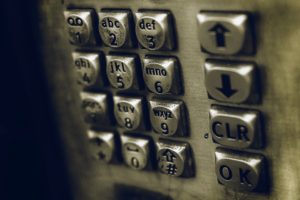This week I’m thinking about labels.
I’m not a fan of labels. They say too much and too little at the same time, and they’re too easy to use imprecisely. Words and definitions matter to me. On the other hand, labels can be useful in that they symbolize a cluster of defining characteristics that have been well enough recognized and described to get labeled in the first place.
At the end of the day, I have a love/hate relationship with labels. I resist taking them on and I resist defining anyone else with them; however, in the course of exploring and reading about our human experience, certain labels have been enormously healing and helpful in my understanding of myself and patterns of behavior I’ve been involved in. I’m proud to carry some labels, even though I rarely talk about them, such as being highly sensitive, as defined by Elaine Aron, PhD. I’m deeply humiliated by other labels, and only reluctantly admit to them, but I know they belong to me whether I admit it or not.
PTSD is a label like that. PTSD is Posttraumatic Stress Disorder. As a young woman, I associated PTSD mostly with Vietnam vets who came home from the war with deep psychic and often physical injuries. Over my lifetime, PTSD has gradually been more commonly recognized and talked about, and the label has expanded to cover all kinds of experiences outside of war. I encounter it regularly, several times each work shift as a medical transcriptionist. Some people are severely affected in their daily lives, and others function very well unless they get triggered.
I grew up actively ignoring my own pain and deeply involved with everyone else’s. I had the idea I was the cause of the pain in those around me and it was up to me to fix it. My own experience wasn’t significant. I also believed it was against the rules for me to have pain in the first place; pain or distress were shameful and weak and had to be concealed and denied at all costs.
This set of beliefs has made me, for most of my adult life, numb to my own distress. I often didn’t recognize pain at all, and automatically employed various coping strategies to deal with it. Sometimes it wasn’t until days or even weeks later I realized dimly I was distressed after a particular conversation or event, and then I felt shame about my distress. This is part of the dynamic that kept me with an abuser for years. I couldn’t really feel emotionally what was happening, even when I tasted blood. There was a disconnect.
At some point it dawned on me that I have PTSD.
I was academically injured and emotionally abused as a child in fourth grade math, which happened to be the year I was introduced to story problems. Before and after that time I successfully navigated beginning math, high school math, fractions, geometry, algebra and even a college semester of calculus and did just fine, all the while firmly convinced by the limiting belief that I couldn’t do math. I failed chemistry and physics in college, the first classes I’d ever failed in my life. Why? Story problems. I became suicidal and severely depressed and eventually dropped out of college, never to return.
I got a job, got married, and began an adult life. I dealt with a paycheck, a bank account, a checkbook, bills, budgeting, taxes, credit cards and all the rest with no problem. But I still believed I couldn’t do math, and for years I had recurring nightmares about getting on the wrong bus at school (they were identified by numbers) or forgetting my locker combination.
For me, living with PTSD is like living with hidden landmines. I go about my business feeling competent, efficient and organized, and then — WHAM!
I’ve been two years in Maine now, with a new address and phone. Six months ago, I was making an appointment to get my hair cut and was asked for my phone number (landline, not cell phone). There was a lady behind me, waiting. Another of my triggers. Terrible things happen when you make people wait. The stylist was in front of me, pencil poised, needing to get back to work and deal with other customers. What’s more basic than your phone number, for God’s sake? A 6-year-old can recite her phone number. These days, most 6-year-olds probably have their own phone numbers!
I was blank. Utterly and completely shut down. Stopped in my tracks. There was nothing in my head but static. I was freezing cold, nailed to the floor, and I don’t think I could have counted from one to ten in that moment. Somewhere deep inside I was screaming, hysterical, panic stricken, and sobbing with shame, but that was happening in another galaxy. My numbers thing had struck again.
Fortunately, I know myself, and unfortunately, this was neither the first nor the last time something like this happened. I went into my wallet and pulled out a piece of paper with my phone number, my address, my birth date, my children’s birth dates, my partner’s phone number and, in disguise, my SS number. I said something about having a new phone number, read it off and got out of there. I sat in the car, shaking, decided I didn’t have to throw up, and went home.
Sitting right here, I know my phone number as well as you know yours, but I’m not under pressure. I also have all the above information pinned onto the bulletin board in my office in the next room, because this can happen when I’m on the phone, too. Someone asks me for my birthday, and that’s it. The lights go out. Total and complete nothingness. I know the month of my birthday because that’s a word, and I love words, but no date, no year.
I’ll write a hundred checks with no problems. Then, one day in a busy store with a line behind me and a hassled cashier, I won’t know the date, not just the numbered date, but the day of the week, the month, the year. It’s just not there. I look at what I’m wearing for clues. I look at the carbon of the last check I wrote, trying to hide that I’m looking. I ask casually what the date is and get the numbered day of the month—but not the month. Somehow, I get through it, but then I’m likely to write the check for the wrong amount because I’m so upset. It doesn’t happen every time, or even most of the time, which is part of the problem. It’s only certain situations, and often I can’t tell what triggered it, so I can’t predict, either. All I can do is be ready and try to deal with my shame and humiliation when it does happen.
It’s on my mind this week because it happened again yesterday.
I work online as a medical transcriptionist and use various software programs for timesheets, recordkeeping and the actual transcription. I’ve been doing this for ten years. As in any job, there are irritating policies and procedures to follow, but I’m familiar with them and I’m extremely meticulous and detail-oriented (no, I did NOT say perfectionistic!), so it’s all in a day’s work.
Except yesterday I realized I somehow made a mistake in my time sheet, and my supervisor was understandably peeved and needed me to fix it. The mistake involved my time sheet, my pay check and my balance of yearly leave hours, all of which, naturally, are represented by numbers. It all conspired in a perfect storm of personal triggers, and I came undone.
Shaking, clammy hands. Hammering heart. Gasping for breath. Trembling legs. Hysterical sobbing. I looked frantically from Leave Request to Timesheet to Records and back again. None of it made sense. I couldn’t even properly recognize a single number. They might as well have been Chinese characters. Punch in, punch out, punch in, punch out — it was like an apocalyptic story problem.
I knew what was happening. I knew I was out of control. I knew I was helpless in the grip of it, and I also knew it would pass.
I got up and left the computer. With my partner, I was able to calm down enough to find language, and talk about it, which helped. Then I ate a big meal. Then I took some music into a quiet part of the house where I wouldn’t be disturbed and danced.
When I went back for my second shift, I looked again, and this time I saw. I knew what my mistake was. It all made sense. I see where I punched in, ran out of work, punched out again. It’s rational, it’s real, it’s verifiable. I’m not crazy. It’s all okay. I know what to do to fix it, but it’s 10:30 in the morning of the next day now and I still haven’t done so. I will. I know I can. But first I wanted to write this and go swimming. I feel a little like I got run over by a truck yesterday, and I still need some recovery time.
This is an experience of PTSD behind the label. What I’m trying to do with this week’s post is remind myself and everyone else that labels are cold, dead things that convey intellectual ideas and information. They can be useful, but they’re limited. Behind every label we use, apply or accept, there’s human experience and feelings, and they’re real, visceral, passionate, complex and sometimes painful, even though they may be invisible to an outside eye.
I know PTSD is only a small part of who I am, a mere fraction, a little hairline crack. It’s there. I’ll own it, but I don’t have to allow it to limit me.
But I still believe I can’t do math.
All content on this site ©2017
Jennifer Rose
except where otherwise noted
© 2017 – 2021, Jenny Rose. All rights reserved.



I’ve read this several times. It really got me. I’m thinking about this. For now, I mostly just wanted to thank you for writing it, and tell you I appreciate your open vulnerability.
CJ: Authenticity is a difficult discipline. I’ve never told anyone before about the extent of this little numbers problem of mine. If my willingness to be vulnerable gives others permission to reclaim their true experience, then perhaps we can all share a little healing together. That’s what I want. Thank you for reading and commenting. Jenny
Nice Jenny…really nice.
Thanks Abigail. The imperfection of being human, right? Jenny